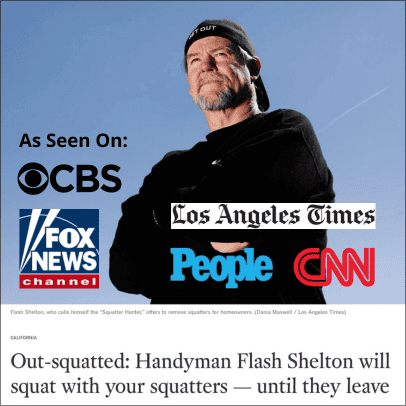Legal Overview of Quiet Title Claims in California for Investment Owners and Deed of Trust Holders – Methodology for Establishing Clear Title in Court
By Nate Bernstein, Esq., Managing Counsel, LA Real Estate Law Group
 Introduction
Introduction
Often times we get calls from clients or colleagues who ask us to explain what a “quiet title” action is. There is no need to be quiet and hush hush about quiet title actions – pun intended! In fact, a quiet title claim is very common claim and cause of action asserted under California real estate law. This article is an overview of the quiet title claim process for property owners and real estate deed of trust lenders who may have a perceived or real problem with their right, title, and interest to real property in California.
Everyone should get a “title checkup.” It is in the best interest of all investment property owners and deed of trust lenders to periodically obtain a copy of a preliminary title report from a reputable title company. You may find items in the title profile for the subject property that are objectionable, fraudulent, or mistakes. These matters should be cleared up. It is healthy to get a title checkup. It leads to good title karma.
If you are in the real estate investment ownership or real estate lending business, you know that having clear, marketable title to real property is an important component to valuable real estate ownership. If your title is not clear, or has chain gaps- you cannot sell, refinance, or otherwise leverage your asset.
Clouds on title may impact an owner’s ability to sell or refinance property, and can impact a lender’s rights for title priority and to foreclose on real property. Clouds on title or mistakes on title can also impact an owner’s ability to evict a tenant- the tenant may claim invalid title as an affirmative defense to an unlawful detainer lawsuit- that is the last thing you want when you are trying to evict a tenant.
The law provides a remedy for fixing title problems. Quiet title lawsuits are one important powerful vehicle for deciding real estate title disputes and deed of trust priority disputes under California law.
Legal Procedures for Quiet Title Claims
When you have a dispute as to the state of the title for a residential real property or commercial real property, or an unfriendly person or entity is making a legal or equitable claim against the title, you can file a “quiet title” lawsuit in the Superior Court where the property is located to resolve the claim. This may be done directly by the party or by the party’s title insurance carrier after a claim is made with the title insurance carrier.
Title insurance companies often times get involved in prosecuting, defending, and settling quiet title actions on behalf of property owners and lenders. Title insurance companies sell title insurance products to purchasers and lenders. When a title insured client makes a claim, filing a quiet title action is often times the method to fix a title problem on real property short of paying off the client’s claim or investment. The goal is to obtain clear, marketable title “as insured” under the title insurance policy.
The quiet title claim can also be brought in conjunction with other claims, such as fraud, a claim for cancellation of an instrument, declaratory relief, injunctive relief, or even equitable subrogation. Each case is fact sensitive. In a declaratory relief action, for example, the court has the power and flexibility to determine the ownership rights of the parties as to an interest in real property as of a certain date. An opponent can also file a countersuit, also called a “cross-complaint.” Today you are the plaintiff, but tomorrow you may be the defendant, and you need to defend yourself!
As another example, in a quiet title lawsuit, you can also litigate a claim relating to a fraudulently executed or fraudulently recorded deed of trust mortgage document. That is why it is a good idea to get a title check up to see what is in your title profile.
An action to quiet title is a lawsuit filed to establish ownership of real property (land and buildings affixed to land). The plaintiff in a quiet title action seeks a court order or judgment that prevents the defendant from making any subsequent or conflicting claim to the property. Quiet title actions are necessary because real estate may change hands often, or there may be a conveyance of a partial interest, and it is not always easy to determine who has title to the property.
In the arena of quiet title litigation, the Court will determine the state of the title as of a particular date, and has the power to “clear title,” remove “the cloud on title,” or make an equitable decision, and, hopefully, resolve the dispute. Title disputes can be adjudicated in an orderly manner without infighting between neighbors or shouting matches. By law, in California, juries do not decide quiet title actions- these actions are decided by judges in bench trials. Thus, there is no right to a jury trial for a quiet title action under California law. Do you really want 12 jurors with little or no legal training deciding who owns your apartment building?
Applicable Laws
Under the laws of the most states in the United States, the law of quiet title is governed by state statutes and the case law authorities that interpret the state statutes. Generally speaking, the law of quiet title in California is governed by California Code of Civil Procedure 760.010-760.060, and the case law interpreting these sections. Also, underlying substantive laws, may apply as well- such as fraud, or breach of contract, the laws of recording and conveyances, or the laws of probate.
When quiet title lawsuit is filed, the plaintiff is required to record a lis pendens at the County recorder’s office. The term “lis pendens” is a latin term for “action pending.” The lis pendens provides notice in the title profile of a particular property that a lawsuit is pending, and that any subsequent grantee, subsequent purchaser, assignee, or lender, takes title subject to the claim. Generally, a lender will not make a loan secured by a title that is subject to a “lis pendens” recording. For the basic statutory procedural requirements for handling a lis pendens, please review California Code of Civil Procedure 405-405.24.
The quiet title action is important, if an owner or secured lender wants to determine that he or she has superior rights to the title of a particular parcel of real property in comparison to other claimants or potential claimants. Secured real estate lenders often seek to establish title profile priority for its deed of trust by filing a quiet title action and adding a claim for declaratory relief. Establishing a clear and marketable title is also crucial for receiving future financing, or for making a marketable future transfer by deed, trust, or will. It is also an important foundation to have clear title if you start an eviction lawsuit- also known as an unlawful detainer action. If title is not clear, how can the person complete an eviction with confidence? Possession to real estate logically follows rights to clear marketable title.
Quiet Title Actions are “Fact Specific.” Most Actions Settle But Some Proceed To Trial or Require a Court Hearing.
In reality, most quiet title lawsuits and related claims are settled after the case is filed and prior to trial. Cases sometimes settle in mediation, at a settlement conference, or through professional communication and compromise between the parties and their attorneys if the parties are reasonable. If quiet title cases don’t settle “out of court,” these claims are decided by judges in bench trials every day. So you need to be prepared to try your case before the judge if the case does not settle.
Other times, when the defendant fails to defend the action , a default is filed and the plaintiff has to prove up the default with live testimony in Court. See Cal. CCP. S. 764.010. That section reads, “The court shall examine into and determine the plaintiff’s title against the claims of all the defendants. The court shall not enter judgment by default but shall in all cases require evidence of plaintiff’s title and hear such evidence as may be offered respecting the claims of any of the defendants, other than claims the validity of which is admitted by the plaintiff in the complaint. The court shall render judgment in accordance with the evidence and the law.” The court hearing requirement in this situation is mandated by the statutory language.
Because of the intricacies of the court process, parties should retain experienced counsel to represent their interests in a quiet title action.
This article is a capsule overview, and each quiet title claim should be treated specifically to address the specific facts and circumstances of the situation. Questions should be directed to Los Angeles Real Estate Law Group at (818) 383-5759.

About the Author
The author of this article, Nate Bernstein, Esq., is the Managing Counsel of LA Real Estate Law Group, and a member of the State Bar of California and his practice concentrates in the areas of complex real estate litigation, commercial litigation, employment law, and bankruptcy matters. The contact number is (818) 383-5759, and email is [email protected]. Nate Bernstein is a 30-year veteran Los Angeles real estate and business attorney and trial lawyer. Mr. Bernstein also has expertise on bankruptcy law, the federal bankruptcy court system, creditor’s rights and debtor’s bankruptcy options. He previously served as Vice President and In House trial counsel at Fidelity Title Insurance Company, a Fortune 500 company, and in house counsel at Denley Investment Management Company. Nate Bernstein created www.laquiettitleattorney.com, a leading educational resource on quiet title real estate litigation. Nate Bernstein is a local expert on real estate law and economic trends in the real estate and leasing market, business law, bankruptcy law. Nate has personally litigated more than 40 major real estate trials, and has settled more than 200 complex real estate and business cases.















 Accessibility
Accessibility